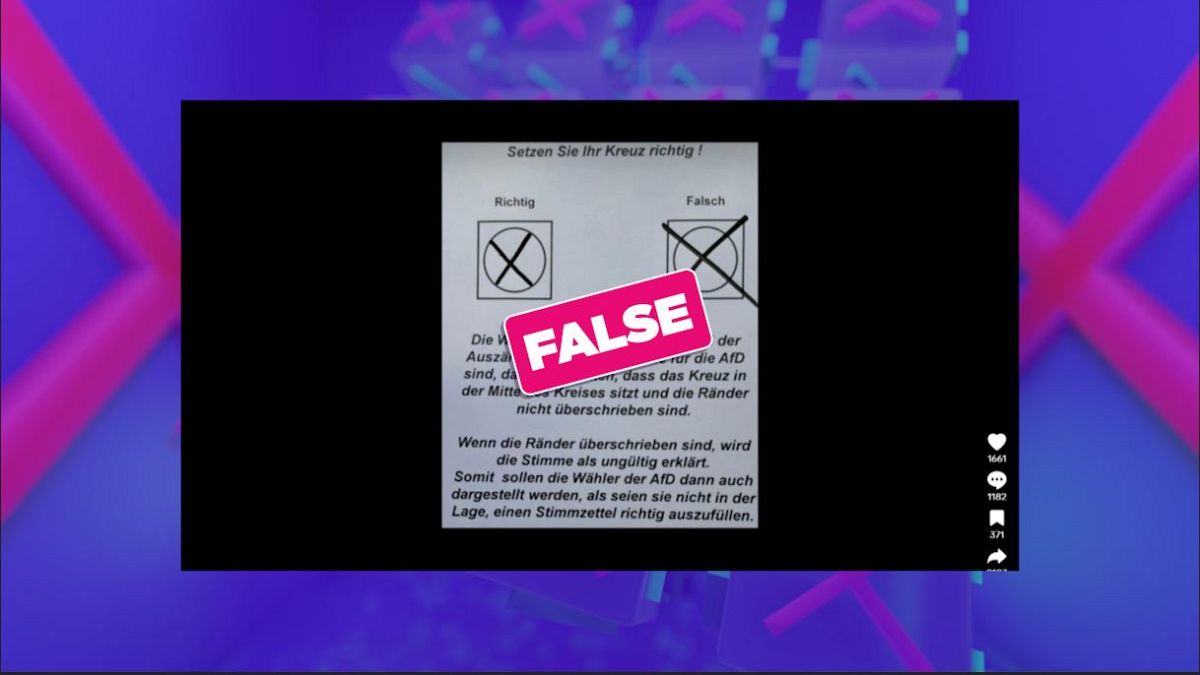As the European elections approach, false claims circulating on German social media suggest that voters can accidentally invalidate their votes. Posts on TikTok are instructing voters on how to correctly mark their ballots in order for them to count. The claims suggest that a cross outside the circle on the ballot will result in disqualification of the vote, particularly targeting Germany’s far-right AfD party. However, these claims are baseless, as the official text of Germany’s MEP elections law allows for various ways to mark a ballot, including using a cross, dot, or tick. The Federal Returning Officer clarifies that votes will only be discounted if they are ambiguous or unclear about the voter’s choice, not if a cross extends beyond the circle.
In addition to false claims about ballot markings, misinformation on social media also suggests that postal votes are at risk of manipulation. Some posts claim that ballot papers with holes punched into them or corners cut off are invalid, but this is incorrect. Germany’s Federal Election Code explicitly states that postal votes may have holes or corners cut off to accommodate visually impaired voters who use braille overlays. However, alterations to official IDs, such as passports or ID cards, can render them invalid if corners are cut off. Being informed about the correct voting procedures is crucial as the European elections approach, along with other elections taking place across Europe.
While the spread of false information on social media can create confusion and uncertainty among voters, it is important to fact-check and verify claims before believing and acting upon them. The claims circulating on German social media regarding the invalidation of votes in the European elections by accidentally marking a ballot incorrectly are baseless. The German MEP elections law allows for various ways to mark a ballot, and a cross extending beyond the circle does not automatically invalidate a vote. It is crucial for voters to familiarize themselves with the official voting procedures to ensure their votes are counted accurately.
Inaccurate information about the manipulation of postal votes in Germany has also been debunked. Claims suggesting that ballot papers with holes punched into them or corners cut off are invalid are false. The Federal Election Code in Germany explicitly allows for such markers on postal votes to assist visually impaired voters who use braille overlays. However, altering official IDs, such as passports or ID cards, by cutting off corners can render them invalid. As the European and UK elections approach, it is essential for voters to be aware of the correct voting procedures in order to prevent misinformation from impacting the electoral process.
As voters prepare for the upcoming European and UK elections, it is crucial to stay informed about the correct voting procedures to ensure that their voices are heard. False claims circulating on social media about invalidating votes by accidentally marking a ballot incorrectly are unfounded. The German MEP elections law allows for various ways to mark a ballot, and a cross extending beyond the circle does not automatically disqualify a vote. Understanding the official voting rules and procedures is key to participating effectively in the democratic process and ensuring that votes are counted accurately. As misinformation continues to spread online, it is important for voters to fact-check and verify information to make informed decisions at the ballot box.




















